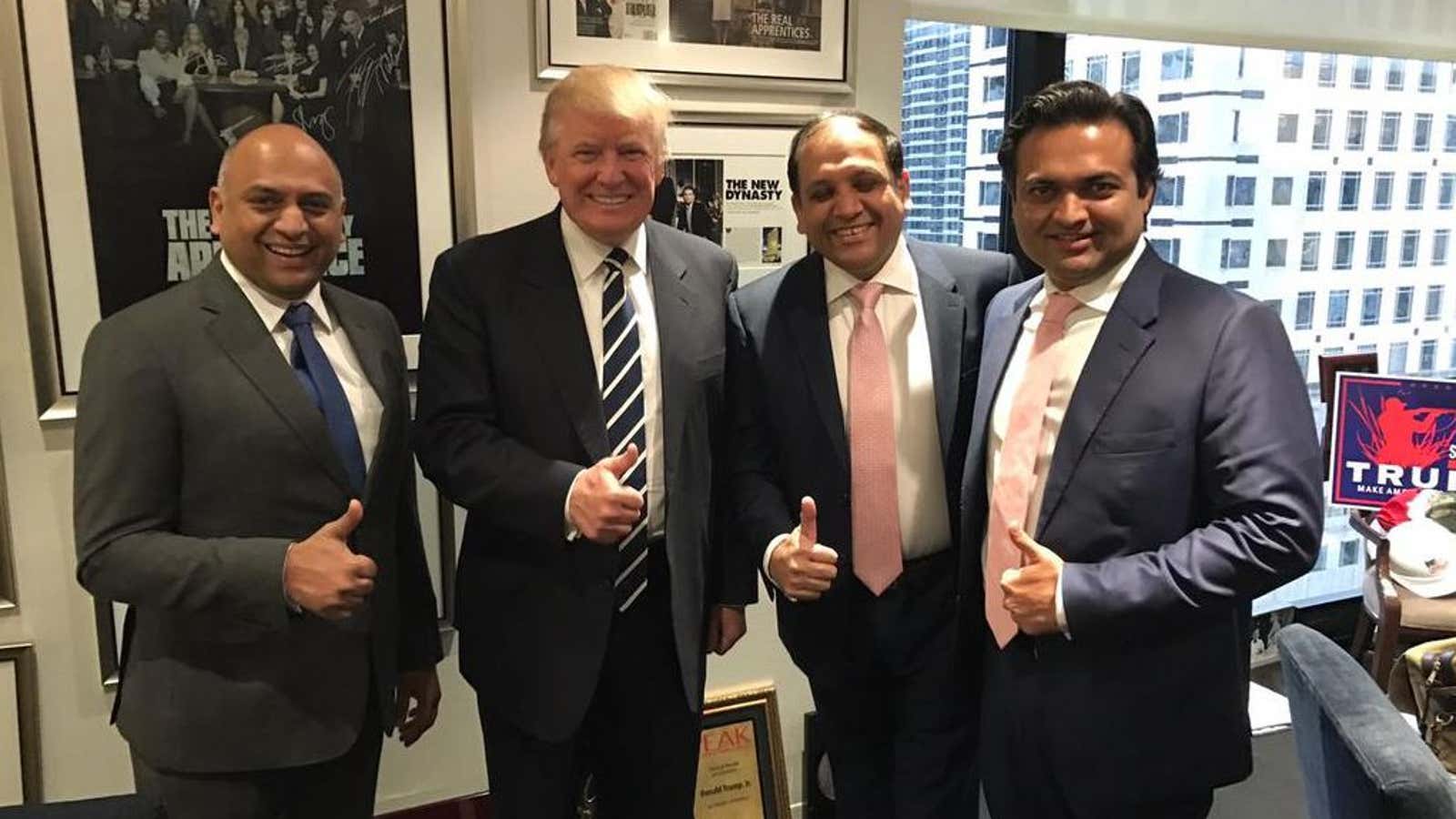With Donald Trump keeping the US press in the dark about who he’s talking to, the international media is becoming an essential source of information about the US president-elect.
Trump’s Nov. 15 meeting with his partners in Indian real estate developments was first reported by the Economic Times of India. While Trump’s organization described the meeting as a courtesy call, the New York Times contacted one of the developers, Sagar Chordia, who confirmed that they discussed future projects. Trump has licensed his name to luxury towers in Pune and Mumbai.
On Nov. 17, the US press was barred from Trump’s meeting with Japanese prime minister Shinzo Abe and reporters were not given a summary of the discussions. Photos were taken by a member of Abe’s diplomatic team, and were distributed by his press office. Trump’s daughter, Ivanka, and her husband featured prominently in the photos, raising questions about their role in the future administration and whether they were representing Trump’s business interests at the meeting.
And today, there are reports that when Argentina’s President Mauricio Macri called to congratulate the president-elect, Trump asked him about construction delays for an office tower in Buenos Aires Trump is involved in building.”This still hasn’t emerged but Trump asked for them to authorize a building he’s constructing in Buenos Aires, it wasn’t just a geopolitical chat,” TV journalist Jorge Lanata said on his TV show, according to La Nacion, an Argentinian newspaper. Talking Points Memo reported the La Nacion article.
In a tweet, BBC journalist Will Carless said a Macri spokesman denied the Lanata/La Nacion report, calling it “absolutely untrue.”
This murky world of claims, denials, and confused reporting is the direct result of Trump’s off-the-books foreign policy and the spread of his international financial interests, including 111 Trump entities involved in projects in at least 18 countries and territories, according to a Washington Post analysis. A number of them are in geopolitical hotspots, like Saudi Arabia, Turkey, and Israel, where US foreign policy has a significant impact on local economies—and, therefore, the success of Trump projects in those countries.
While US presidents generally do not have to abide by the conflict-of-interest rules that govern other elected or appointed officials in the country, Trump’s situation is without precedent. His refusal to put his business in a blind trust—instead, he says he’s asking his children to manage them—means speculation will continue, and his lack of transparency about who he’s talking to, and about what, means the US media will continue to scrape international reports for hints about his activities.
